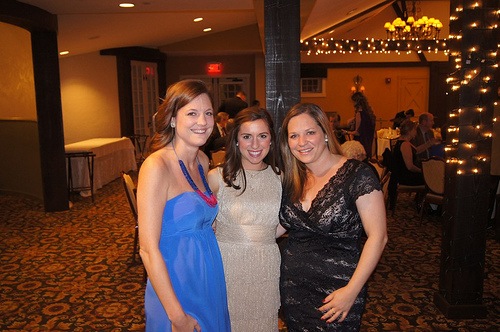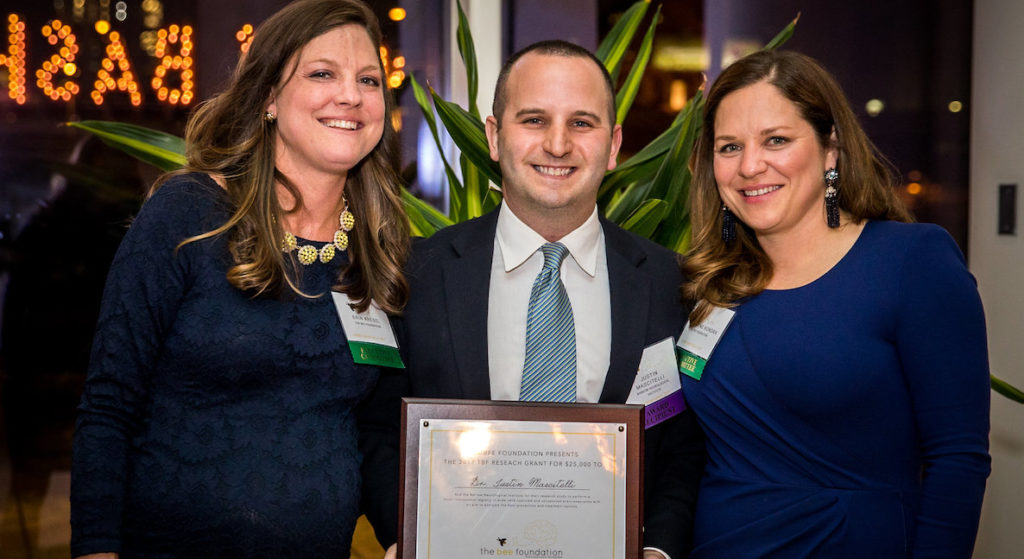Holidays can be stressful for anyone. Which is why, in December 2013, when 27-year-old Society Hill health coach and wellness blogger Jenny Sedney came down with an excruciating headache on the treadmill, she didn’t panic.
But the very next day, Sedney collapsed and was rushed to the hospital.
And on Christmas Day 2013, Jennifer Sedney died. The cause: a ruptured brain aneurysm.
Sedney’s cousins, Berwyn natives Christine Kondra and Erin Kreszl, were at the hospital when she took her last breaths. Bereft, they vowed then not to let their cousin’s shocking death be in vain.
![]()
“Jenny was like another sister to us. And if the situation had been reversed, she would’ve said to us ‘Stop crying and get up—we’re going to do something about this,’” Kondra says.
So Kreszl and Kondra got to work, quickly learning that in the U.S., a brain aneurysm ruptures every 18 minutes—and that, despite the prevalence of brain aneurysms, there has historically been very little research funding concentrated on preventing their rupture. That, Kondra and Kreszl established, was where they wanted to make an impact.
In a nod to their late cousin’s love of bees—Sedney had a wellness blog called The WellNest, with the themes “Bee Curious. Bee Radiant. Bee Well.”—in 2014 they formed The Bee Foundation, whose mission is to support groundbreaking research on preventing brain aneurysm rupture.

In less than five years, The Bee Foundation has raised nearly $1 million, which they’ve awarded as six research grants and used to fund a brain aneurysm research fellowship at The Mt. Sinai Hospital in New York. “With the establishment of our annual preventative research grants, we’ve shifted the conversation among researchers to place an emphasis on prevention,” says Kreszl.
The sisters have already seen a sea change in the field. A recent pilot research study that their funding made possible, for example, focused on the development of what could be a groundbreaking blood biomarker for brain aneurysm development and rupture.
The sisters have already seen a sea change in the field. A recent pilot research study that their funding made possible, for example, focused on the development of what could be a groundbreaking blood biomarker for brain aneurysm development and rupture.
Along with an all-volunteer board, Kondra and Kreszl, who both now live in Wayne, juggle the Foundation on top of their other local roles. Kondra is the co-owner and chef at Cornerstone Bistro and Artisanal Market in Wayne, which has given her a platform to spread the message of the foundation; the Cornerstone Legacy Circle entitles restaurant patrons who want to make large donations to The Bee Foundation—$500, $1500, $5000—to receive benefits like access to exclusive food and wine events. Kreszl, a mom of two young children, is a consultant at Mercer in Center City. Both women are involved in every part of the organization, not only planning fundraisers like their annual Honey Bash gala—which, this year, will be held at Fitler Club on October 5th—but also lobbying on Capitol Hill for more government research funding and increased transparency about exactly how aneurysm research dollars are used.
In a few weeks, you can join The Bee Foundation in D.C. for the annual Brain Aneurysm Lobby Day on March 26th and 27th. The Foundation will provide education and preparation on the 26th, before day-long meetings with Congressional aides on the 27th to rally support for House Bill #594—also known as the “Ellie Helton, Lisa Colagrossi, Teresa Anne Lawrence, and Jennifer Sedney Focused Research Act” or “Ellie’s Law”; it’s a bill that seeks $25 million in government funding for brain aneurysm research over five years.
“We’re very realistic that getting this passed could take years,” Kondra says. “But Jenny always said that she wanted to make an impact on this world. And the fact that there is research happening and a bill on the House floor with her name on it is our way of keeping her spirit alive.”

